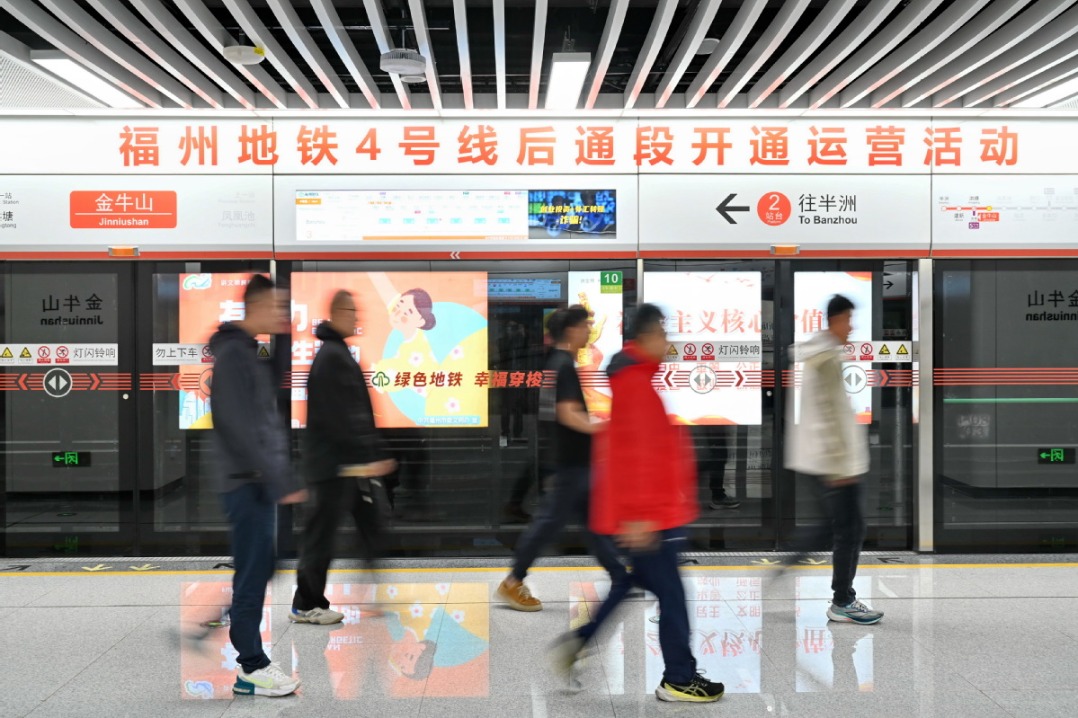Nanotech makes bathing elderly safer and easier

A nanotechnology-based bathing solution that requires just one bottle of pure water and a single staff member to complete full-body cleaning is now available in Shanghai as part of new services for elderly bathing assistance.
"Our nanogenerator creates water particles as small as 500 nanometers, enabling deep penetration into skin pores for effective cleansing during the 15-minute bath," said Ding Qingfei, general manager of Nano Mist Care, which developed the new bathing system.
The service is introduced in Shanghai's first systematic and professional vocational training program for elderly bathing assistants, launched in the Minhang district's elderly care service capacity building base. The training incorporates traditional bathing assistance and technology-based solutions to ease the bathing process for seniors.
The program aligns with guidelines from the Shanghai Civil Affairs Bureau, which has integrated bathing assistance into community home-based care. From more than 100 applicants, 50 trainees were selected based on caregiving credentials and nursing experience. The training program, which includes over 16 class hours, emphasizes customized home-based bathing services for bed-bound seniors and includes practical sessions whereby trainees experience the bathing process themselves before conducting supervised home visits.
"The temperature, ranging from 38 to 42 Celsius, stimulates perspiration, allowing nanodroplets to permeate and dislodge deposits," Ding said, adding that the portable folding bathing cabin can be set up on beds, reducing the risks associated with moving elderly clients and helping them maintain comfort and dignity.
"Traditional bathing often requires moving seniors from bed to tub and back, which poses significant risks," Ding said. "Our technology minimizes these risks while maintaining dignity and comfort."
Chen Hong, director of the Minhang district's elderly care service capacity building base, said growing demand for professional elderly care has raised expectations for service quality and standards. "By specializing in roles like bathing assistance, we can better match elderly needs while promoting professional development in the elderly care industry," Chen said.
Instructor Liu Zenghui outlined key requirements for home bathing, including adequate air conditioning, water heating systems, and at least 6 square meters of space. Pre-service assessments evaluate factors such as elevator access and bathtub dimensions, while conditions including severe high blood pressure, skin infections, and limited joint mobility may preclude eligibility for home bathing services.
A unique aspect of the training involves role reversal, allowing caregivers to experience being assisted themselves. "Understanding the difference between giving and receiving assistance builds essential empathy," Chen said. "This helps caregivers appreciate seniors' vulnerability and potential discomfort, emphasizing both technical proficiency and emotional support."
Shen Yaqin, 39, a trainee from a local elderly care management service center, said the demand for such services will only increase in an aging society. "This isn't just a job — it's a responsibility to help seniors maintain dignity and cleanliness in their daily lives," she said.
The program also focuses on pre-bathing assessments and emergency response. "We learn to evaluate conditions such as pressure sores and cognitive impairments to ensure safe service delivery," Shen said.
Graduates will receive specialized vocational certificates, enabling them to provide professional bathing services. "We're working with municipal authorities and we wish to make these certificates valid citywide," Chen said.
Currently priced at 299 yuan ($41.70) per session within Shanghai's outer ring road, the service has served about 700 elderly clients over the past three years. Ding noted that summer demand has surged, prompting increased recruitment efforts.
Despite the program's success, challenges remain, including regional disparities in elderly care services across China and the absence of bathing assistance from the national occupational directory, which complicates standardization.
"Nevertheless, current demand and industry trends indicate strong growth potential for bathing assistance services, and we remain committed to sector development," Chen said.
- The Olympic spirit: a guiding light in everyday life
- Ambassadors promote China-Africa cooperation at lecture tour in Shanxi
- China's poverty alleviation achievements continuously consolidated, expanded in 2025
- China achieves key results in 10-year fishing ban on Yangtze River
- Line 4 of Fuzhou Metro begins operation
- Taiwan people pick 'dismiss' as most representative word of 2025




































